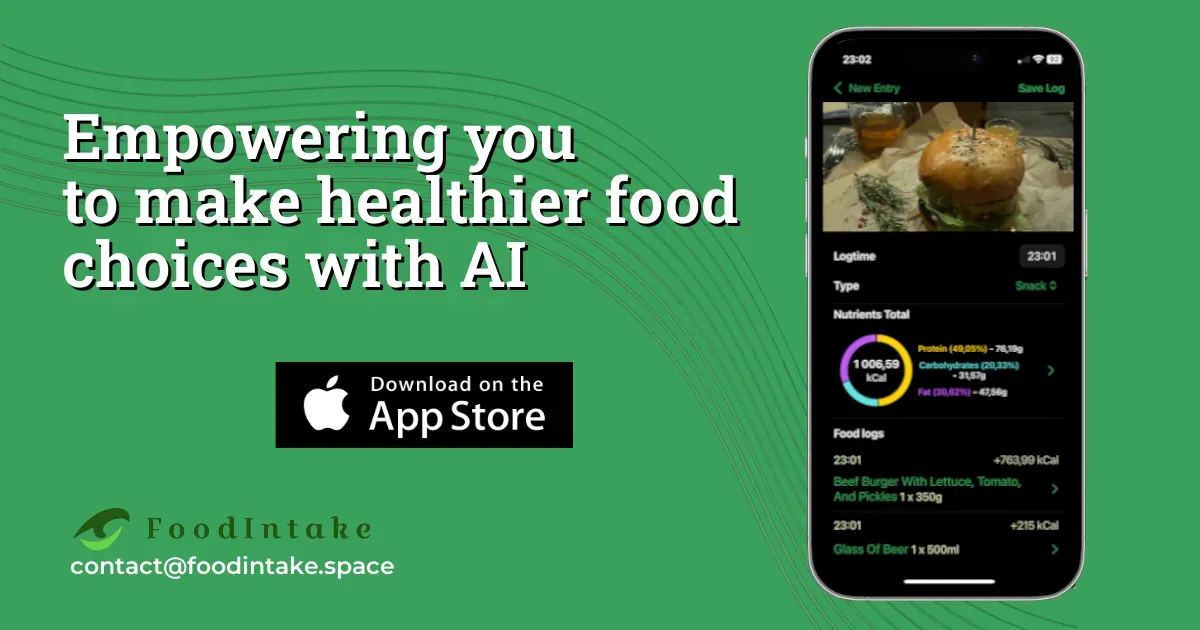Calories for pregnancy calculator

Pregnancy is a time of significant changes and increased nutritional needs. Understanding how many calories to consume and tracking your intake can be crucial for the health of both the mother and the baby. This article will guide you through the essential aspects of calorie intake during pregnancy, including recommended weight gain, the use of a pregnancy calorie tracker, and answers to common questions. Along the way, we’ll introduce you to the FoodIntake app, an AI-powered tool designed to make tracking your dietary needs easier than ever.
How many calories should a pregnant woman eat?
During pregnancy, caloric needs increase to support the growing baby and the mother’s changing body. On average, pregnant women should consume about 300 extra calories per day during the second and third trimesters. These additional calories help ensure adequate nutrition and energy for both the mother and the baby. The exact amount can vary based on factors like age, weight, height, and physical activity level. Using our free macronutrients and calories for pregnancy calculator, you can determine your specific caloric intake. Along the data you also will see your BMI.
Pregnancy weight gain calculator
Weight gain during pregnancy is crucial for a healthy baby and mother. The recommended weight gain depends on the mother’s pre-pregnancy weight:
• Underweight (BMI < 18.5): 28-40 pounds
• Normal weight (BMI 18.5-24.9): 25-35 pounds
• Overweight (BMI 25-29.9): 15-25 pounds
• Obese (BMI ≥ 30): 11-20 pounds
Tracking your weight gain helps ensure it falls within these guidelines, supporting a healthy pregnancy. The FoodIntake's macronutrients and TDEE (Total Daily Energy Expenditure) pregnancy weight gain calculator can assist in monitoring your current weight and progress and making necessary adjustments.
Pregnancy calorie tracker
Tracking caloric intake during pregnancy offers numerous benefits, ensuring both mother and baby receive adequate nutrition. While some worry that calorie tracking might lead to unhealthy eating patterns, it can be a valuable tool for maintaining a healthy pregnancy when done correctly. The FoodIntake app simplifies this process by using AI to analyze images or text descriptions of meals, providing accurate nutritional information. This feature is particularly beneficial for pregnant women, helping ensure they consume enough calories and nutrients to support a healthy pregnancy.
Benefits of Calorie Tracking for Pregnant Women
1. Ensuring Adequate Nutrition: Helps monitor essential nutrients like iron, calcium, folic acid, and DHA.
2. Preventing Excessive Weight Gain: Keeps weight gain within recommended ranges, reducing risks of gestational diabetes and hypertension.
3. Managing Energy Levels: Supports stable energy levels for moms managing pregnancy demands.
4. Supporting Healthy Eating Habits: Encourages healthier food choices.
Dispersing Fears of Calorie Tracking
Concerns about calorie tracking during pregnancy include potential disordered eating and an unhealthy focus on food. However, these issues can be mitigated by:
• Focusing on Nutrients, Not Just Calories: Emphasize quality calories from consuming a balanced diet rich in fruits, vegetables, whole grains, lean proteins, and healthy fats.
• Flexible Approach: Allow for flexibility in your diet. Some days may require more calories, especially during the second and third trimesters.
• Consult Healthcare Providers: Discuss dietary plans with your doctor or healthcare provider to ensure calorie tracking supports your health without causing stress.
What is DHA?
DHA, or Docosahexaenoic Acid, is an omega-3 fatty acid that is crucial for brain, eye, and heart health. It is a major structural component of the brain, cerebral cortex, skin, and retina. DHA is essential during pregnancy and early childhood for the development of the baby’s brain and eyes.

Importance of DHA During Pregnancy
1. Fetal Brain Development: DHA is a key building block of the brain. Adequate levels of DHA are associated with improved cognitive and visual development in infants.
2. Eye Development: DHA is concentrated in the retina of the eye. Sufficient DHA intake is linked to better visual acuity in infants.
3. Maternal Health: DHA supports the health of the mother during pregnancy, aiding in mood regulation and reducing the risk of postpartum depression.
Sources of DHA
DHA can be obtained through dietary sources and supplements. Some of the best sources include:
• Fatty Fish: Salmon, mackerel, sardines, and tuna are rich in DHA.
• Fish Oil Supplements: These provide a concentrated source of DHA.
• Algal Oil Supplements: These foods are a vegetarian source of DHA, derived from algae.

Conclusion
Ensuring adequate weight gain during pregnancy is essential for the health of both the mother and the baby. A balanced diet that includes a variety of nutrients is crucial for supporting fetal development and maternal health. Key nutrients such as iron, calcium, folic acid, and DHA (Docosahexaenoic Acid) should be a priority in your diet. By monitoring your caloric intake and focusing on nutrient-dense foods, you can maintain a healthy pregnancy and support your baby’s growth and development.

FAQ: Does your body burn more calories when pregnant?
Yes, your body burns more calories during pregnancy and birth, due to the increased metabolic demands of supporting a growing baby. This is why additional caloric intake is necessary, especially during the second and third trimesters.
FAQ: How much nutrition does a pregnant woman need?
A pregnant woman needs a balanced diet rich in essential nutrients, including protein, healthy fats, vitamins, and minerals. Adequate intake of folic acid, iron, calcium, and DHA (Docosahexaenoic Acid) is particularly important for the baby’s development. The FoodIntake app helps you track these nutrients easily.






